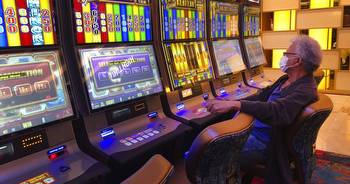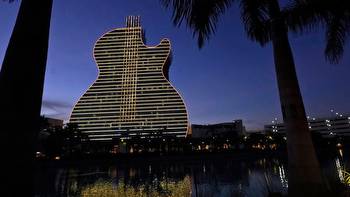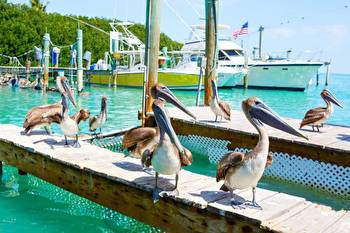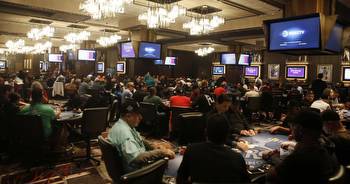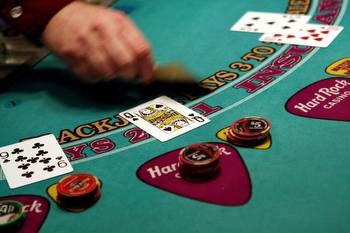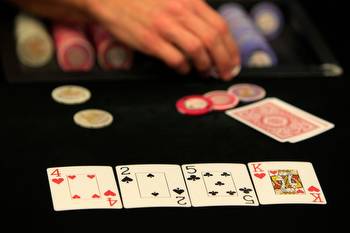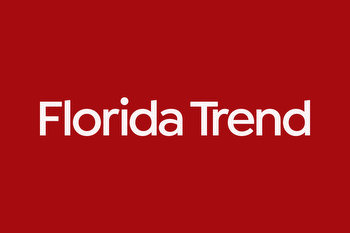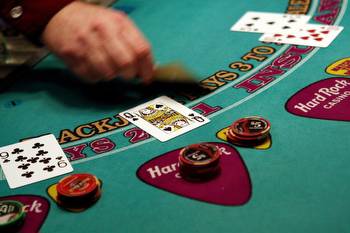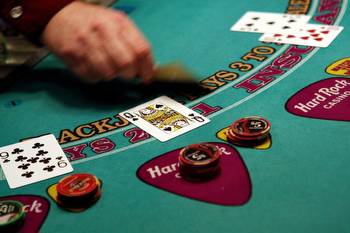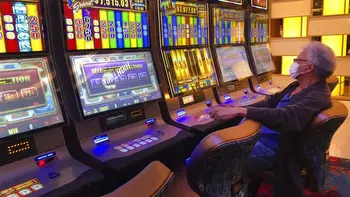Florida Judge Denies Injunction In Gambling Initiative Fight

TALLAHASSEE (CBSMiami/NSF) – A Leon County circuit judge on Wednesday refused to immediately halt efforts backed by the Seminole Tribe to try to block a gambling initiative from getting on next year’s ballot.
The initiative, supported by casino giant Las Vegas Sands Corp., would allow voters to decide whether to allow pari-mutuel operators in North Florida to add casino games to their operations. The measure, if approved, would open the door to Las Vegas-style casinos along the Interstate 10 corridor in North Florida and is geared toward a facility in the Jacksonville area.
NASA's New X-Ray Observatory Rocketed Into OrbitFlorida Voters in Charge, the political committee behind the proposed constitutional amendment, is racing to meet a Feb. 1 deadline to submit nearly 900,000 signatures to the state to make it onto the 2022 ballot.
A lawsuit filed by the committee in Leon County circuit court accused businesses, individuals and a committee linked to the Seminoles of trying to “sabotage” the petition-gathering efforts. Florida Voters in Charge asked Circuit Judge Angela Dempsey to issue a temporary injunction to halt alleged “tortious interference” related to the attempts to block the proposal from going before voters.
But Dempsey on Wednesday refused to grant a temporary injunction and scheduled another hearing Friday on the defendants’ motion to have the case dismissed.
The lawsuit alleges “parties acting on behalf of the Seminoles have engaged in concerted and aggressive efforts to harass and intimidate individuals who are exercising their legal right to obtain signatures necessary to place a citizen initiative on the Florida 2022 ballot.”
The lawsuit also alleges that parties linked to the Seminoles are “paying off” contracted petition circulators to quit working and leave the state. While Florida Voters in Charge needs to submit 891,589 valid signatures to the state by Feb. 1, it needs to finish collecting the signatures by the end of December because of the time needed for county elections supervisors to process them.
“There is an emergency here,” Jim McKee, a Tallahassee attorney who represents Florida Voters in Charge, told Dempsey during Wednesday’s hearing. “Every day that goes by, what’s happening is people are being poached. People are being paid to leave the state, for what purpose? For the sole purpose of trying to not have the requisite number of signatures obtained between now and Dec. 30. We’re only 22 days away. At this point, the whole point is to try to get as close to Dec. 30 as possible while they continue to do their obstructionist and sabotage activities.”
Lawyers for the defendants, meanwhile, argue Dempsey should dismiss the case,
“Fundamentally, they’re seeking to silence the number of voices that speak against them with vague allegations, a complaint that doesn’t identify who these real people are who’ve been tortiously interfered with and frankly … they say that those A, B, and C still have a contractual relationship with them,” West Palm Beach attorney William Shepherd of the Holland & Knight law firm argued during Wednesday’s hearing.
According to the state Division of Elections, Florida Voters in Charge had submitted 230,062 signatures as of Wednesday afternoon, surpassing the number required for a critical Florida Supreme Court review of the wording of the ballot initiative.
Defendants in the lawsuit include Marc Jacoby; Kara Owens; Cornerstone Solutions Florida LLC; Let the Voters Decide, LLC; and Standing Up for Florida, Inc., a political committee backed by the Seminoles.
Las Vegas Sands has poured at least $27 million into Florida Voters in Charge, according to the Division of Elections website.
FIU Names Miami Native Mike MacIntyre As Head Football CoachStanding up for Florida, which has received at least $10 million from the tribe, has paid Cornerstone more than $5.5 million since Oct. 1, according to the state Division of Elections website.
In a prepared statement following Wednesday’s hearing, Cornerstone president Rick Asnani disputed the allegations in the lawsuit.
“We’re pleased that their request for an emergency temporary injunction was denied today. We look forward to presenting our arguments to the court on Friday at our hearing for the motion to dismiss. We’re doing nothing illegal; we’re doing nothing wrong,” Asnani said.
Part of the opposition campaign involves asking people to sign petitions supporting a gambling deal that the tribe reached with the state this year. But because the opposition campaign is not trying to change the state Constitution, it doesn’t have to follow restrictive laws about placing citizens’ initiatives on the ballot.
For example, the tribe-backed campaign is able to pay workers by the signature, which can dramatically boost signature gatherers’ earnings. Groups leading citizens’ initiatives, such as Florida Voters In Charge, are not allowed to pay by the signature but instead are restricted to paying by the hour or by salaries.
The highly competitive signature-gathering process is a cut-throat — and big money — arena in Florida politics.
The tribe-backed signature-gathering effort “serves no legitimate purpose,” the plaintiffs’ lawsuit alleges.
But in their motion to dismiss filed Tuesday, the defendants argued that the plaintiffs are trying to quash constitutionally protected speech.
“Despite the bold language in plaintiffs’ amended complaint, what plaintiffs are really asking this court to do is to prevent the defendants from lawful hiring practices that support First Amendment free speech,” Shepherd wrote. “The plaintiffs seek to have this court create a non-existent and illegal no-poaching agreement in restraint of employees’ free right to choose their own employer.”
The legal wrangling over the petition-gathering effort comes after a Washington, D.C.-based federal judge last month ruled that the gambling deal reached this year by tribe and the state, known as a compact, violated the federal Indian Gaming Regulatory Act, which lays out a framework for gambling on tribal lands. The ruling was based on part of the compact that allows the tribe to operate online sports betting in the state.
The Seminoles on Saturday temporarily suspended their mobile sports-betting app, after a three-judge panel of the U.S. Circuit Court of Appeals for the District of Columbia refused to put U.S. District Judge Dabney Friedrich’s ruling on hold.














